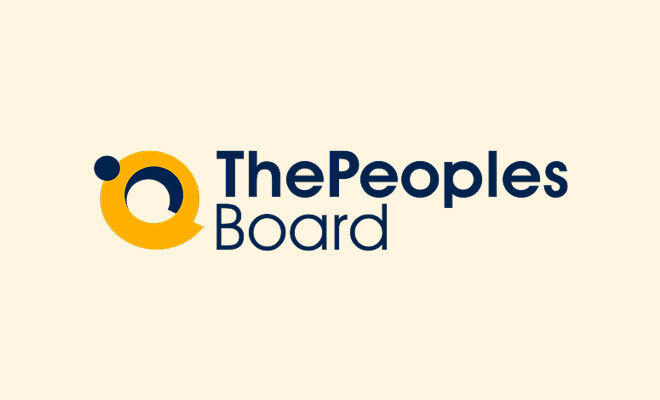In human resources (HR), navigating complex interpersonal dynamics, staying updated with evolving labor laws, and managing organizational challenges requires technical expertise, wisdom, and guidance.
This is where having a mentor can make all the difference. A mentor in HR can provide invaluable insights, career advice, and support, helping you grow personally and professionally.
Mentorship is particularly significant for Indian HR professionals, given the unique challenges posed by India’s diverse workforce, intricate labor regulations, and evolving corporate landscape.
This article explores why mentorship is important in HR, the steps to find a mentor, and how to make the most of this vital relationship.
The Importance of Mentorship in HR
Guidance in Career Development
The vast HR field encompasses recruitment, talent management, employee relations, compliance, and more. A mentor can help you identify your strengths, guide you toward a specialization, and help you chart a clear career path.
Learning from Experience
Mentors often bring years of experience, having encountered challenges similar to those you might face. Their insights can prevent avoidable mistakes and provide alternative problem-solving perspectives.
Networking Opportunities
Mentors often have extensive professional networks. They can introduce you to influential people in the HR domain, opening doors to career opportunities and collaborations.
Building Confidence
Navigating the complexities of HR in a culturally diverse country like India can be daunting, especially for newcomers. A mentor can instill confidence by offering encouragement and actionable advice during difficult times.
Keeping Pace with Industry Trends
The HR profession is rapidly evolving with the adoption of technologies like AI, changes in labor laws, and shifting workplace expectations. A mentor can help you stay ahead of these trends and adapt effectively.
Steps to Find a Mentor in HR
Finding the right mentor is a crucial step in your professional journey. Here’s how you can do it:
Identify Your Goals and Needs
Before seeking a mentor, define your objectives. Are you seeking guidance on career progression, advice on handling workplace challenges, or insights into a specific HR domain like recruitment or employee engagement? Knowing what you need will help you approach the right person.
Look Within Your Organization
Many companies in India have formal mentorship programs, especially larger organizations. If such programs exist in your workplace, leverage them to connect with senior HR professionals. If not, consider approaching experienced colleagues or managers whose work you admire.
Tap into Professional Networks
Join HR-focused professional associations like the National HRD Network (NHRDN) or the Society for Human Resource Management (SHRM) India. These platforms host events, workshops, and conferences where you can meet seasoned HR professionals willing to mentor budding talent.
Use LinkedIn
LinkedIn is a powerful tool for finding mentors. Look for HR leaders in your industry or region and engage with their content. When reaching out, craft a personalized message expressing your admiration for their work and your interest in learning from them.
Attend Industry Events
Industry-specific events, seminars, and webinars provide excellent opportunities to meet HR professionals who can mentor you. In India, events like HR Conclaves and SHRM India conferences attract top HR leaders, making them ideal for networking.
Seek Guidance from Academia
If you’re a student or recent graduate, approach professors or alumni who specialize in HR at your university. Alumni networks often foster strong bonds, and many professionals are happy to mentor students from their alma mater.
Participate in Online Communities
Join HR-specific online communities, forums, or groups on platforms like Telegram, WhatsApp, or Facebook. Many HR professionals actively participate in such groups, sharing knowledge and advice.
Start with Informal Mentorship
Sometimes, mentorship starts informally. If you find someone whose advice resonates with you, seek their guidance on more minor issues. Over time, this relationship can evolve into a formal mentorship.
How to Approach a Potential Mentor
When approaching a potential mentor, keep these points in mind:
Be Clear and Respectful
Clearly articulate why you admire their work and what you hope to learn from it. Keep your initial communication concise to respect their time.
Express Genuine Interest
Show that you’re serious about personal and professional growth. Mention specific instances where their work or advice has inspired you.
Offer Something in Return
Mentorship is often a two-way street. While you may not match their expertise, you can offer assistance with research, share insights from your generation, or support them in other ways.
Be Patient
Not everyone may have the bandwidth to mentor someone. If someone declines, thank them politely and consider approaching someone else.
How to Make the Most of the Mentorship Relationship
Finding a mentor is just the beginning. Building a strong and mutually beneficial relationship requires effort and commitment.
Set Clear Expectations
Discuss the scope of the mentorship, including how often you’ll meet, preferred modes of communication, and the areas you’ll focus on.
Be Proactive
Take the initiative to schedule meetings, share updates, and ask for advice. Show your mentor that you value their time by coming prepared with specific questions or challenges.
Listen and Act
Actively listen to your mentor’s advice and try to implement their suggestions. To keep the dialogue constructive, share feedback on what worked and what didn’t.
Be Honest
Be transparent about your goals, challenges, and limitations. Authenticity helps build trust and strengthens the mentorship.
Respect Boundaries
While mentors are there to guide you, remember that they have their own commitments. Avoid overwhelming them with excessive demands.
Show Gratitude
Regularly express your appreciation for their time and guidance. A simple thank-you note or a small gesture of gratitude can go a long way in maintaining a positive relationship.
Benefits of Mentorship for HR Professionals in India
Accelerated Career Growth
With a mentor’s guidance, you can avoid common pitfalls, focus on skill-building, and make strategic career moves.
Improved Problem-Solving Skills
Learning from a mentor’s experiences enhances your ability to tackle workplace challenges effectively.
Increased Confidence
Regular feedback and encouragement from a mentor boost self-assurance, helping you take on greater responsibilities.
Enhanced Perspective
Mentorship provides insights into industry trends, cultural nuances, and strategic thinking, broadening your professional outlook.
Lifelong Relationships
A strong mentor-mentee relationship often evolves into a lasting professional friendship, offering ongoing support throughout your career.
Conclusion
Having a mentor can be a game-changer in the dynamic and demanding world of HR. For Indian HR professionals, a mentor’s guidance is invaluable, as the interplay of culture, labor laws, and workplace diversity presents unique challenges.
By identifying your goals, leveraging professional networks, and fostering genuine relationships, you can find a mentor who helps you unlock your full potential. Mentorship is not just about seeking advice; it’s about building a meaningful relationship that inspires growth, fosters learning, and shapes you into a confident and competent HR professional.
With the right mentor, you can navigate the complexities of the HR field and leave a lasting impact on your organization and career.




